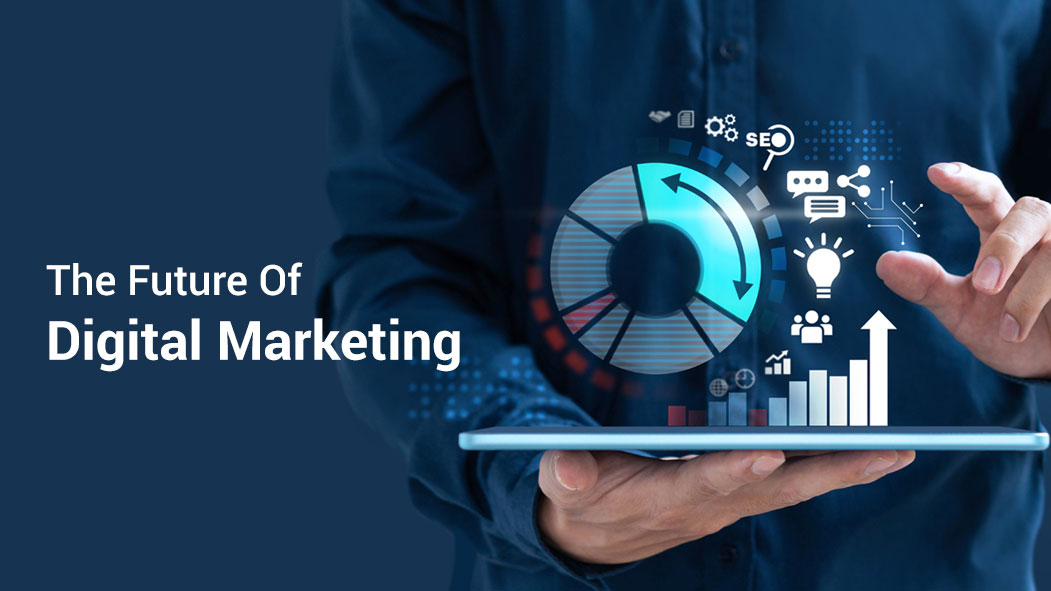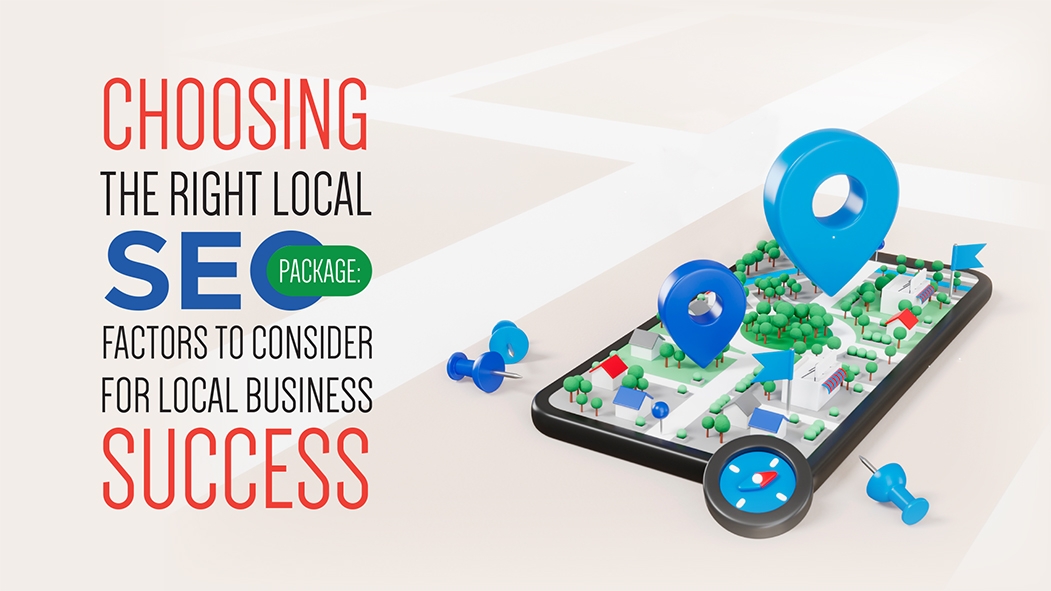June 06, 2022

The COVID-19 epidemic disrupted global economic order, but it also accelerated digital marketing efforts. In fact, many organizations were able to switch to remote work and recognize the importance of digital marketing during the pandemic.
Digital marketing has become a way for many start-ups and small enterprises to acquire a competitive advantage in the market. Digital marketing is an ever-evolving field where the only constant is change. As we head towards 2022, it's critical that we, as marketers and business owners, keep up with the newest industry trends. We may change our marketing strategy in this way, embracing tomorrow's innovations and methods while phasing out the outdated ones.
However, the question remains - What is the future of digital marketing?
The Future Of Digital Marketing
1. Artificial Intelligence Based Marketing
Artificial intelligence (AI) is the emulation of human intelligence in machines. In many ways, this broad discipline of computer science is poised to alter marketing employment and the digital industry as a whole. This rise is unsurprising, especially when you consider all of the advantages that come with using AI in marketing. In the last four years, the number of organizations using artificial intelligence has increased by almost 270 percent (Source: Gartner, 2019). Marketing teams will be able to automate some cognitive processes with AI-powered solutions. They will also be able to recognize existing trends and predict future ones, assisting them in ensuring success of their marketing strategies. Believe us when we say, these are only a few of the applications of AI in the future of Digital Marketing.
2. Virtual Reality
Virtual reality marketing is now, not in the future. Virtual reality technology was already familiar to 78 percent of people in 2018. Since the last five years, that number has been gradually increasing. Virtual reality (VR) is becoming increasingly popular as a marketing tool for businesses. Some people use virtual reality capabilities in social media apps like Instagram, while others design their own apps. Virtual reality marketing, regardless of the approach used, opens up new (and perhaps less expensive) opportunities to communicate with customers and raise brand awareness. Brands like Sephora and Ikea began providing a virtual representation of how their products would seem in real life, an approach that is now being adopted by companies all over the world.
3. Voice Search Marketing
Voice search has dominated the search scene and the digital marketing industry in recent years. Many people find it useful because it allows them to speak into their gadgets instead of putting terms into a search query to get responses. Our devices' speech recognition has likewise gotten increasingly advanced and precise. Although voice recognition has been around for a while and isn't a wholly new concept, the arrival of voice assistants like Amazon's Alexa, Google Assistant, and Siri has marked a technological leap in recent years. With the advancements in voice search and brands incorporating the feature into their digital strategies, voice search marketing appears to be on its way to being a vital aspect of digital marketing in the near future.
4. Data-Driven Marketing
Marketing has progressed over time. The days of making snap decisions and hoping it works are long gone. Data-driven decision making is the new trend. With the correct data, skilled marketers can figure out who is responding to their marketing efforts, which channels are effective, and even what time of day their target demographic is online in real time. This allows marketers to focus data-driven marketing initiatives rather than using a shotgun approach. Due to the extensive availability of data and analytics technologies, data-driven marketing is clearly one of the leading trends in the digital marketing sector.
5. Customer Experience Management
Customers do not have the same perception of digital channels as you have. As part of their total client experience, they seamlessly transition from one digital platform to the next. A digital customer experience plan should include several channels that all work toward the same goal: ensuring customer happiness throughout the journey. You'll be able to satisfy your consumers' expectations for simplicity, comfort, and speed across many digital channels with an omnichannel digital customer care approach. In the near future, your success will be determined by how successfully you deliver and personalize these experiences.
6. Data Analytics
It's never been easier for business owners to see, understand, and use their data for brand promotion, which is why the analytics industry's future seems so promising. Businesses can use data analytics tools to gather more information about their digital strategy, giving them an advantage over their competitors. Analytics has always played, and will continue to play, a significant part in digital marketing since it assists companies in developing a data-driven marketing approach. Marketers need to know where their money goes and how much money is coming back to them. Whether it's likes, shares, or conversions, the future of the analytics business is transforming how marketers perform their jobs with AI as well as data science.
7. Machine Learning
While AI tries to replicate human intelligence, Machine Learning takes data from the past and applies it to tasks on its own. Machine Learning is increasingly dominating discussions about the future of digital marketing. In terms of the industry, the technology is still in its infancy, but its effect is expanding. Machines can swiftly and efficiently examine large amounts of data without human mistake. The capacity of a machine to discern trends and patterns from data can easily outperform that of a human. As a result, several industry specialists are developing their own custom-built machine learning systems to aid in the delivery of improved results to customers and clients. That is one of the reasons why Machine Learning is important for the future of digital marketing.
Digital Marketing, as an industry, is evolving rapidly. As a marketer, you must always be looking ahead, adapting to new trends. Webmantra, as a digital agency equipped with a team of skilled professionals and required experience, can help you stay ahead of time. All you have to do is reach out!
Digital Marketing, as an industry, is evolving rapidly. As a marketer, you must always be looking ahead, adapting to new trends. Webmantra, as a digital agency equipped with a team of skilled professionals and required experience, can help you stay ahead of time. All you have to do is reach out!

 Academy
Academy






